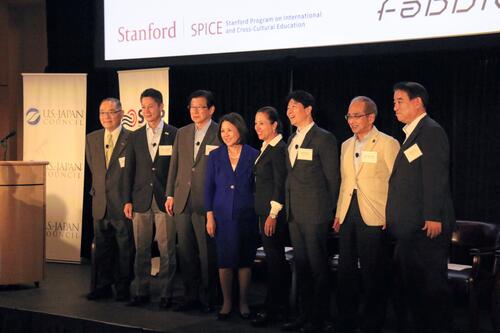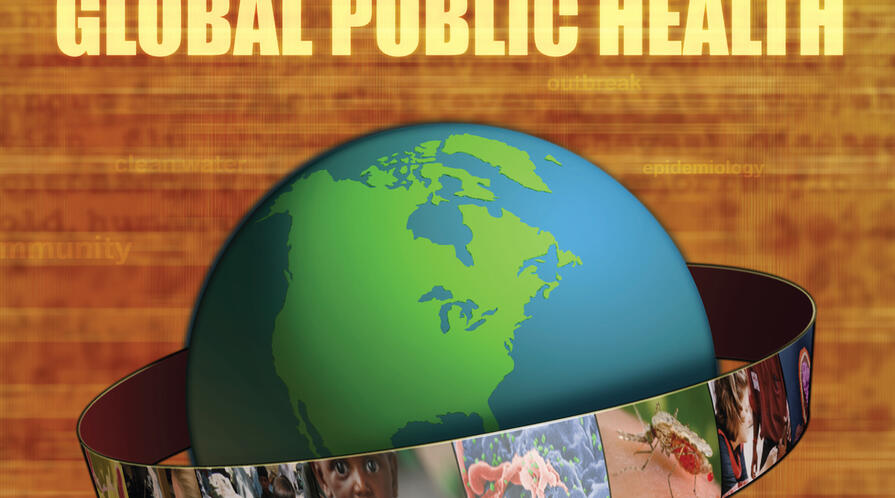Training for the Olympics During COVID-19
The sports world has been dramatically affected by COVID-19. Not only has there been a significant decline of events for the spectator—both in person and on television—but the impact on the participants themselves has also been unprecedented. Due to social gathering restrictions, organized youth sports have been almost completely shuttered. High schools and colleges have been cancelling their practices and competitive seasons. The PAC-12 recently postponed its football season. The pandemic has also had a dramatic effect on sports at the highest level. Only fairly recently have there been abbreviated attempts to reinstitute professional sports seasons such as Major League Baseball and the National Basketball Association. Even the 2020 Olympic Games in Tokyo were postponed to 2021.
SPICE is helping to develop the CoviDB Speaker Series, a TeachAids initiative which provides free online videos to educate the general public about the ongoing COVID-19 pandemic. For episode 4 of the CoviDB Speaker Series, TeachAids Founder and CEO Dr. Piya Sorcar decided to provide a glimpse into how the pandemic has impacted the lives of two of the world’s greatest athletes. Sorcar enlisted the support of Emmy Award-winning sportscaster Ted Robinson to interview three-time Olympic diver and gold medalist Laura Wilkinson and five-time Olympic gold medalist swimmer and Stanford student Katie Ledecky.
The interview can be viewed here. Robinson drew out insightful perspectives from Ledecky and Wilkinson concerning the uncertainty that they lived with while awaiting the decision about whether the 2020 Olympics would be held, and also their feelings once the decision to postpone the Olympics was made. Wilkinson reflected, “What was frustrating at first, turned out to be really special” as she reflected upon things like spending extra time with her family, including four children. Ledecky added that being able to focus more on her studies at Stanford University definitely helped to create a little more balance in her life. In response to Robinson’s question about maintaining the discipline to train in light of the postponement, Ledecky responded
During a segment of the interview that focused on advice for youth, Ledecky noted, “The work that you put in doesn’t go away… It is always in the bank… At some point in the future, you are going to be able to compete again, have those opportunities to let that work show.” Wilkinson added, “When you want something, it doesn’t matter what people say about you or what they think of you. If you think you want to do this, if this is your goal, you have to go after it because you’re capable of more than you probably think you are. And other people’s opinions do not need to define you or what you’re capable of doing. You define that.”
For each of the first four episodes in the CoviDB Speaker Series, SPICE has developed a teacher’s guide to encourage the showing of the episodes in U.S. classrooms at the secondary school level. Each of the guides includes (1) a summary of the questions that were asked by the interviewer, including terms and definitions, (2) guiding questions for small-group work, and (3) debriefing activities. In the area of debriefing activities, writing prompts such as the following for episode 4 are offered to students.
- Laura and Katie commented on how their lives have been disrupted since the pandemic. Write a diary entry about how your life has been disrupted. What has been especially challenging? What lessons have you learned from the experience?
- Write about a time when you were disappointed with the cancellation of something. How did you cope with it? Did you learn something positive from the experience? Have you ever been in limbo about whether an event was going to happen or not? How did this make you feel?
Other suggested debriefing activities involve the designing of an artistic image, writing of a poem, or writing lyrics to a song that captures the significance of quotes from the interview such the following:
- Laura: The sun is a great healer in a lot of ways, both emotionally and physically.
- Katie: The Olympics is … an opportunity for the world to come together.
- Laura: I think that it [COVID-19] has reminded us of how connected we are as a world and how we all need to be doing our individual parts to combat this.
- Ted: I have been around athletes in team sports who at some point have said that they kept playing because they wanted their kids to see them.
As TeachAids and SPICE think about their work with youth, two statements from the interview were especially poignant to the staffs. Ledecky noted, “This is history [the time of COVID-19] but you don’t have to be afraid of it. Fear is really a mindset… so if you do everything that you can do, there is no point in worrying beyond that because worrying does not help you at all. It is not going to change anything. Do what you can control. Worry about the things that you can control and things that you cannot control, you have to let those go.” Wilkinson stated, “This [challenging time] could be that gift to you. This could be that opportunity to rise to a whole new level. Don’t look at this and be sad and upset. Look at this as an opportunity of how you can get ahead.” Though the statements were intended as advice for youth, in fact, the statements seem relevant today to all of us.
The CoviDB Speaker Series is a TeachAids initiative that is co-sponsored by the Stanford Center for Innovation in Global Health, the University of California San Francisco’s Institute for Global Health Sciences, and the Stanford Program on International and Cross-Cultural Education (SPICE).
Stanford Health Policy: COVID-19 Pandemic
Read More

For episode 4 of the CoviDB Speaker Series, TeachAids Founder and CEO Dr. Piya Sorcar provides a glimpse into how the pandemic has impacted the lives of two of the world’s greatest athletes.






 Takatsuki students (with Ishimatsu and Mukai projected on screen)
Takatsuki students (with Ishimatsu and Mukai projected on screen)










